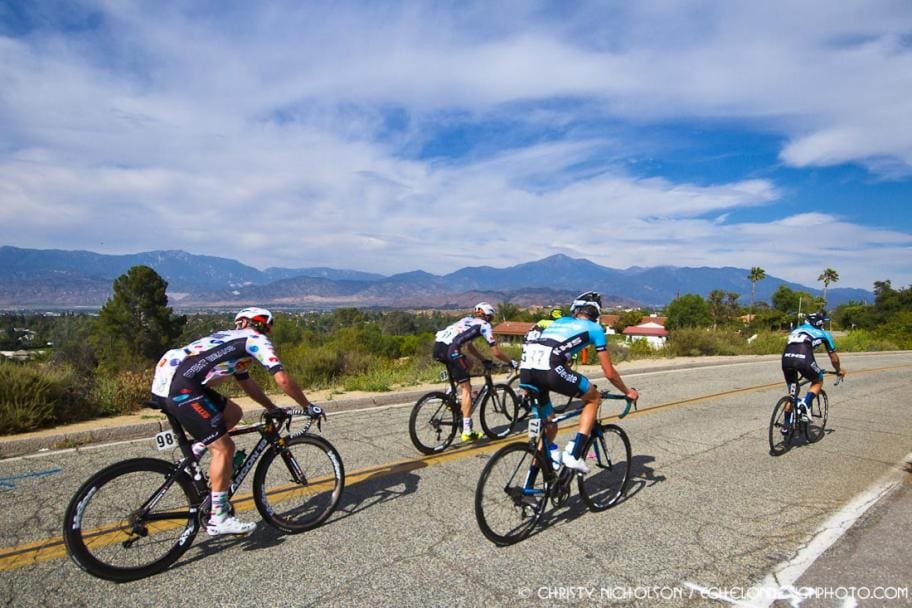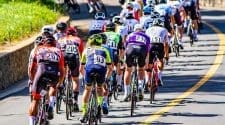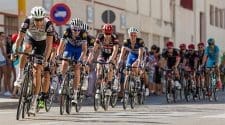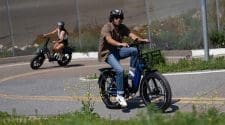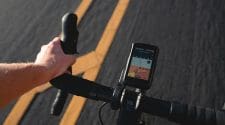For most of us, the road cycling season is finally over! Here in Southern California, we have a long cycling race season indeed. It is typical for a rider to be physically and mentally fried after being competitive from January through August. It definitely pays to take a break, smell the roses, and get that long-desired rest that you probably yearned for while training for the final events of the year. Well, now is the time to take a break and have fun with some “off-season” activities. This period will recharge the batteries. Specifically, it will allow your muscles and mind to fully recover from the cumulative stress that you subjected yourself to, week after week, while training and racing.
The Transition Period for Road Cyclists
The reason I put the term “off-season” in quotes is to help prevent the assumption that it is a time to become sedentary, drink beer (well, at least too much beer), and forget about the bike until a teammate calls you in January and asks you if you are doing an early season race. It is good, even mandatory, to take some time off the bike – but not that much!
How Long Should Your Cycling Off-Season Be?
Although it depends on how much riding and racing you did towards the end of the racing year, most riders can recover and recharge their batteries in as little as two to four weeks. After a long and tough season, even six weeks off the bike may be fine as long as you stay active. For myself, I like to continue riding, whether there is much racing or not. This allows me to take four or five weeks “off” before training resumes – a good time for me personally to start the training. I like this better than starting my off-season after the last criterium But again, it all depends on the individual – your current condition and particular goals for the following season.
Many riders don’t want to take any break for fear that they will “lose everything that they have gained over the past several months”. That won’t happen. Yeah, you may lose your edge – your current form (if you still have any at the end of a long season), but that’s okay. It’s the off-season – you don’t need to be fast! You need to be fresh. A little rest now will go a long way down the road. You’ll find that after a few weeks, you may actually like your bike again, and not want to throw it off the bridge that you crossed while riding into a 30 m.p.h. headwind. It will really help you want to ride.
Rest and Recovery: The Foundation of Next Season’s Success
The key is to make sure your training calendar includes a time for rest and recovery. For many athletes, I include a “transition” period in September, October and/or November, which allows for rest and other activities. During this transition period, before substantial on-the-bike training, the athlete should be confident that the rest period is an integral part of their training plan. Rest assured, your training will continue soon enough. Before you know it, you will be back on the bike full swing, but you should only do so after being fully recovered and ready for such training.
So, you’re convinced that having some extra rest might be a good thing. What do you do now? The first thing you should do once your racing season is over is . . . pretty much nothing. Just rest for a bit until your energy levels rise up to their normal level. Then, when you feel good, take part in activities that you enjoy – ones that you haven’t done in a while for lack of time. Go golfing, hiking, fishing – whatever it is. I use this time of the year to go on a family vacation and completely enjoy myself. Primarily, know that you need very little structure during this time period.
Cross-Training Ideas to Stay Active and Fit
After a few weeks, you may want to incorporate a little cross-training. Some activities may be hiking, skiing, running, rowing, or swimming. You may also want to jump on the mountain bike and do some fun rides. Emphasis on the “fun”. Enjoy the scenery and don’t hammer. This will help you maintain some general aerobic fitness and keep your weight down. On my training calendar, I may allocate 2 to 6 hours of cross training during a given week. Some athletes may also want to begin training in the weight room towards the end of this period – it all depends on the athlete’s condition, plans, and goals for the following season. Also, this is a good time to implement core body exercises – something that next season’s cycling performance will definitely benefit from. Again, all activities are essentially unstructured during this period. Do these activities whenever you feel like it. And if you are tired, don’t. Remember to keep your heart rate down during this time of the year. Everything you do should be in the lower aerobic heart rate zones.
Managing Weight During the Off-Season
Many riders gain a little weight during this period and that is usually okay. But, watch your intake. If you are not exercising at all, you may not want to order that extra cheeseburger at the local burger joint. About 5% of your regular racing weight is probably the most you should gain during the off-season. Any more than that could make it that much more challenging once on-the-bike training resumes. Keep in mind, however, that if your goal is to lose weight for the following season, now is the time to drop a few pounds. It is difficult to simultaneously lose significant weight and train or race effectively. When racing, you need energy. You need ample calories – food! In the off-season, you can afford to run at a deficit – you don’t need maximal strength and endurance.
Why Enjoyment is Key for Long-Term Cycling Success
Finally, don’t forget to enjoy yourself! Many dedicated athletes have a hard time letting themselves relax after a tough racing season. You won’t fall apart by taking a month off to enjoy yourself. It is much more likely that a lack of rest and recuperation will contribute to you “cracking” during pre-season training or, at best, very early the following season. Remember that physical and mental freshness is an essential ingredient of a successful training plan. The rest you get early on definitely serves a purpose and is part of the foundation upon which you will build your upcoming cycling season! Enjoy!
Get Ready for a Strong Start Next Year with a Cycling Coach
Looking for expert guidance from a cycling coach? Check out SoCalCycling.com’s Find a Cycling Coach Directory and connect with a coach who can help you train smarter and ride stronger.
By Dan Vinson
No products found.


